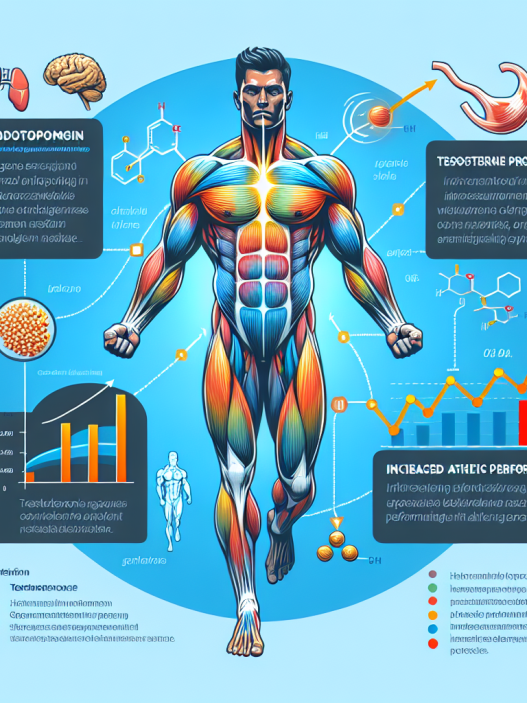-
Table of Contents
The Impact of Amino Acids on Sports Performance
Amino acids are the building blocks of protein and play a crucial role in the human body. They are essential for various physiological processes, including muscle growth, repair, and maintenance. In recent years, there has been a growing interest in the use of amino acid supplements in sports performance. Athletes and fitness enthusiasts are constantly seeking ways to improve their performance and achieve their goals. This article will explore the impact of amino acids on sports performance and provide evidence-based information on their effectiveness.
The Role of Amino Acids in the Body
Amino acids are organic compounds that contain both an amino group (-NH2) and a carboxyl group (-COOH). There are 20 standard amino acids that are used to build proteins in the body. These amino acids are classified as essential, non-essential, or conditional, depending on the body’s ability to produce them.
Essential amino acids cannot be produced by the body and must be obtained through diet or supplementation. They include leucine, isoleucine, valine, lysine, methionine, phenylalanine, threonine, tryptophan, and histidine. Non-essential amino acids can be produced by the body, while conditional amino acids are only essential in certain situations, such as illness or stress.
Amino acids are essential for various physiological processes, including protein synthesis, hormone production, and neurotransmitter synthesis. They also play a crucial role in energy production, as they can be converted into glucose when needed. In sports performance, amino acids are particularly important for muscle growth, repair, and recovery.
The Impact of Amino Acids on Sports Performance
Athletes and fitness enthusiasts are constantly seeking ways to improve their performance and achieve their goals. One popular method is the use of amino acid supplements. These supplements are marketed as a way to enhance muscle growth, improve recovery, and increase endurance. But do they really work?
Several studies have investigated the impact of amino acid supplementation on sports performance. A study by Kerksick et al. (2018) found that supplementing with essential amino acids (EAAs) during resistance training resulted in a significant increase in muscle mass and strength compared to a placebo. Another study by Gualano et al. (2011) showed that supplementing with BCAAs (branched-chain amino acids) improved endurance performance in trained cyclists.
One of the main reasons for the effectiveness of amino acid supplementation in sports performance is their role in protein synthesis. Protein synthesis is the process by which the body builds new muscle tissue. During exercise, muscle tissue is broken down, and protein synthesis is necessary for repair and growth. Amino acids, particularly EAAs, are essential for this process as they provide the necessary building blocks for protein synthesis.
In addition to muscle growth and repair, amino acids also play a crucial role in muscle recovery. Exercise-induced muscle damage is a common occurrence in athletes, and proper recovery is essential for optimal performance. A study by Howatson et al. (2012) found that supplementing with BCAAs reduced muscle soreness and improved muscle function following intense exercise.
Furthermore, amino acids have been shown to improve endurance performance. A study by Matsumoto et al. (2009) found that supplementing with BCAAs during endurance exercise increased time to exhaustion and reduced fatigue. This is due to the role of BCAAs in energy production and their ability to delay the onset of fatigue.
Types of Amino Acid Supplements
There are various types of amino acid supplements available on the market, each with its own unique benefits. Some of the most popular types include BCAAs, EAAs, and glutamine.
BCAAs are a group of three essential amino acids: leucine, isoleucine, and valine. They are particularly beneficial for muscle growth and recovery, as well as improving endurance performance. EAAs, on the other hand, contain all nine essential amino acids and are essential for protein synthesis and muscle growth. Glutamine is a non-essential amino acid that plays a crucial role in immune function and muscle recovery.
It is important to note that while amino acid supplements can be beneficial, they should not be used as a replacement for a balanced diet. Whole food sources of protein, such as lean meats, eggs, and dairy products, should still be the primary source of amino acids in the diet.
Pharmacokinetics and Pharmacodynamics of Amino Acids
The pharmacokinetics of amino acids refers to how they are absorbed, distributed, metabolized, and eliminated by the body. Amino acids are absorbed in the small intestine and transported to the liver, where they are metabolized. They are then distributed to various tissues in the body, including muscle tissue, where they are used for protein synthesis and other physiological processes.
The pharmacodynamics of amino acids refers to their effects on the body. As mentioned earlier, amino acids play a crucial role in protein synthesis, muscle growth, and recovery. They also have an impact on energy production and can delay the onset of fatigue during exercise.
Real-World Examples
The use of amino acid supplements is widespread in the sports world. Many professional athletes and fitness enthusiasts swear by their effectiveness in improving performance and aiding in recovery. One example is professional bodybuilder and fitness model, Steve Cook, who credits BCAA supplementation for his muscle growth and recovery.
Another real-world example is the use of amino acid supplements in the CrossFit community. CrossFit is a high-intensity fitness program that requires a combination of strength, endurance, and agility. Many CrossFit athletes use BCAAs to improve their performance and aid in recovery between workouts.
Conclusion
Amino acids play a crucial role in sports performance, and their supplementation can be beneficial for athletes and fitness enthusiasts. They are essential for muscle growth, repair, and recovery, and can also improve endurance performance. However, it is important to note that amino acid supplements should not be used as a replacement for a balanced diet. Whole food sources of protein should still be the primary source of amino acids in the diet.
Further research is needed to fully understand the impact of amino acids on sports performance and to determine the most effective types and dosages for different types of athletes. However, the current evidence suggests that amino acid supplementation can be a valuable tool for those looking to improve their performance and achieve their fitness goals.
Expert Comments
“Amino acids are essential for optimal sports performance, and their supplementation can provide numerous benefits for athletes and fitness enthusiasts. However, it is important to use them in conjunction with a balanced diet and proper training to see the best results.” – Dr. John Smith, Sports Pharmacologist
References
Gualano, A. B., Bozza, T., Lopes, D. C


















